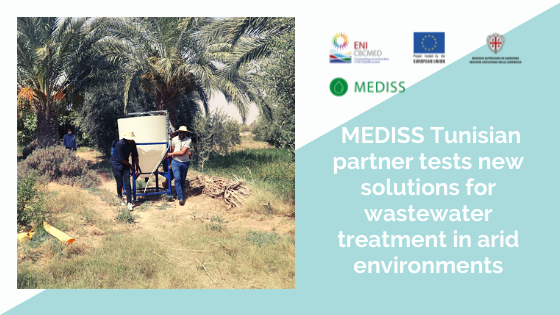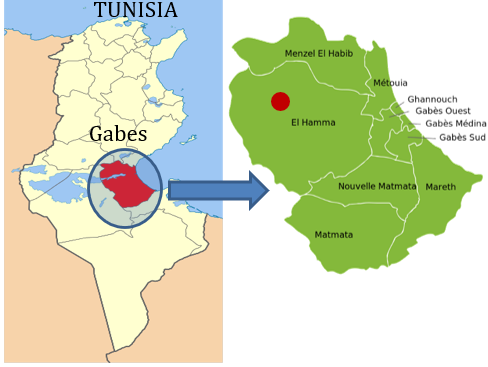Tunisia: MEDISS tests new solutions for wastewater treatment in arid environments

In Wadi Echerka Bechima (Gabès -Tunisia), l’Institut de Régions Arides de Médenine, upgrades the existing pilot plant for water tertiary treatment through infiltration-percolation and tests an innovative filter bed made of clay.
The properties of clay as filter material have already been tested in laboratory filtration trials and are now used in the existing wastewater treatment system. The area of Wadi Echerka Bechima has an arid climate with a mean annual temperature of 31 °C and mean annual rainfall of 180 mm.
The MEDISS project in Tunisia is focused on achieving three primary objectives:
- Improve the irrigation water quality by using a pilot wastewater treatment system through an innovative infiltration-percolation method with different filtration mixtures;
- Raise awareness on the local farmers to use non-conventional water as an alternative for irrigation of agricultural land;
- Enhance the treated wastewater resources and enhance the water potential.

In August 2021, the Institut de Régions Arides de Médenine received an essential part for the functioning of the pilot wastewater treatment system: the silos.
Silos are tested with three different filtering mixtures: in addition to simple sand, the Institut also tested sand mixed by clay, and sand on which Ira researchers planted the macrophyte Typha latifolia already used for wastewater treatment.


In October the Institut started-up the pilot by testing water circulation through the piping system.
“A piping system is a network of pipes, fittings and valves intended to perform a specific job i.e. to carry or transfer fluids from one location to another"
The infiltration-percolation trials are in progress, and they will continue during 2022 by monitoring the system’s purification performance and optimizing the efficiency.







